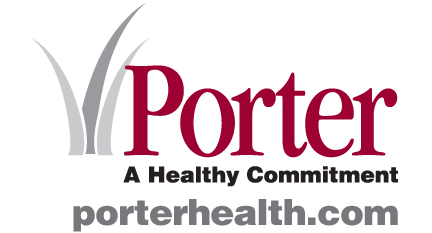When I Look in the Mirror, I See My Mother

- By: Porter Regional Hospital
- Last Updated: February 10, 2010

From the 2010 Winter StayHealthy publication
Along with your mother’s eyes or your father’s singing voice, you’ve inherited a complete genetic profile and clues to your future health. And, just as your family tree gives you background on your history, a family medical history can provide hints to your future. 
It’s no secret that many diseases run in families – prevalent diseases like heart disease, cancer, and diabetes, as well as rare diseases like hemophilia, cystic fibrosis, and sickle cell anemia. If one of your parents has high blood pressure, it’s not unusual for you to develop the same condition. Knowing your family medical history can help your doctor in predicting or diagnosing a condition, and can help you in making lifestyle changes to prevent disease.
“Family history is an invaluable tool that helps save lives in cardiology,” said Allen Miller, Director, Cardiology Service Line for Porter’s Cardiac & Vascular Institute. “For example, we just helped a patient with a life-threatening heart arrhythmia. But, beyond helping the patient, we were able to help his family by recommending that his two-year-old son also be tested for the condition. We know that these arrhythmias technically kill more people than heart attacks and many people go through life unaware of their arrhythmia. Because we know this child’s family history, we may be able to prevent problems for him in the future,” he said.
 Beyond arrhythmia, family history can indicate an array of other potential cardiac conditions, such as coronary disease and hypertension. In fact, a recent international study showed that family history might tell more about the risk of venous thromboembolism (VTE) than testing for thrombophilia. “Family history is a risk indicator for a first venous thrombosis regardless of the other risk factors identified,” said the study conducted in The Netherlands. “Knowing that you have a family history of heart disease doesn’t mean you’re ‘doomed,’” said Miller. “Just the opposite. The information allows you to take better care of yourself. You watch more closely. Get screened sooner. Maybe you reduce your cholesterol. Watch your weight. Just knowing can help you take better care,” he said.
Beyond arrhythmia, family history can indicate an array of other potential cardiac conditions, such as coronary disease and hypertension. In fact, a recent international study showed that family history might tell more about the risk of venous thromboembolism (VTE) than testing for thrombophilia. “Family history is a risk indicator for a first venous thrombosis regardless of the other risk factors identified,” said the study conducted in The Netherlands. “Knowing that you have a family history of heart disease doesn’t mean you’re ‘doomed,’” said Miller. “Just the opposite. The information allows you to take better care of yourself. You watch more closely. Get screened sooner. Maybe you reduce your cholesterol. Watch your weight. Just knowing can help you take better care,” he said.
My ‘Family Health Portrait’ Tool To bring attention to the importance of family history, the Surgeon General has launched a public health campaign to encourage all American families to learn more about their own family health history. As part of the campaign, the Surgeon General created a computerized tool to help make it fun and easy to create your own family health tree. The Health Portrait Tool walks you through simple questions to quickly create your own “family tree” which you can then share with your doctor and other family members – either in printed form or electronically. It takes minutes. You can access the Health Portrait Tool at www.familyhistory.hhs.gov.